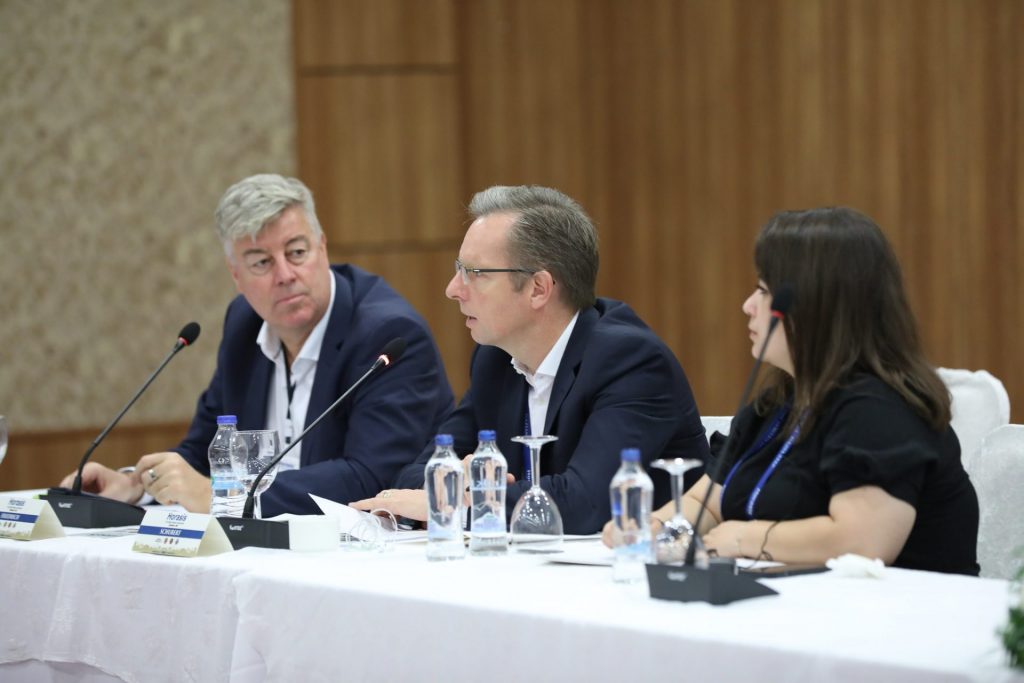The expert Horasis panel on “Supporting Early Technology Adopters” held in Gaziantep, Türkiye on 23 October 2023, brought together thought leaders from diverse sectors, shedding light on the pivotal role of the human factor in driving technology adoption. The lively and inspirational discussion unveiled insights and case studies that underscored the importance of understanding and engaging with end users to ensure the successful implementation of cutting-edge technologies.
Felix von Schubert, New Space Capital, UK emphasized how space technology can play a crucial role in managing climate risks and achieving sustainability goals. He provided an illustrative case of a company leveraging space technology to combat methane leaks, a major contributor to global warming. The panel concurred that while venture capitalists have valuable experience in the startup and investment landscape, multiple perspectives should be considered when seeking advice on early-stage investments. Critical thinking and due diligence are imperative in this process.

The panel also explored the concept of tackling challenges through an iterative approach, often referred to as ‘trial and error’. Volker Friedrich, Managing Director, GBP International, Germany, shared some notable examples from Germany where this approach has led to significant progress in technology adoption, and gave the example of his mentoring partners from the German Entrepreneurship Programme in Singapore.
To summarise these discussions, here are the key takeaways:
1. Understanding and addressing end-user needs and preferences is critical to driving early technology adoption.
2. A trial and error approach allows for more adaptable and effective solutions to overcome the challenges associated with technology adoption.
Volker Friedrich provided a memorable quote:
“The key success factor of any company, regardless of the product or service it offers, lies in its people. Cultivating an entrepreneurial spirit and passion in our society is essential to drive innovation”.
At the end of the session, the key lessons learned can be summarised as follows:
1. Empathy for End Users: Deep customer empathy and active involvement of end-users in the design and development process are vital for successful early technology adoption.
2. Embrace Trial and Error: Encourage a culture of experimentation, learning from failure, and refining solutions based on real-world feedback.
3. Foster Innovation: Cultivate an environment that encourages innovation, risk-taking, and an entrepreneurial mindset within organizations and society.
4. Supportive Ecosystem: Create a supportive ecosystem that allows for controlled experimentation and failure, enabling organizations to refine strategies and solutions.
5. Passion and Commitment: Foster a genuine passion for the mission at hand to motivate teams and drive successful technology adoption.
In closing, Volker Friedrich encapsulated the spirit of the discussion:
“We need to create an environment that not only supports success, but also allows for failure in the midst of trial and error. It is through these experiences that we truly learn and grow.”
The expert panel discussion served as a testament to the power of collaboration, innovation, and the human factor in driving early technology adoption.
